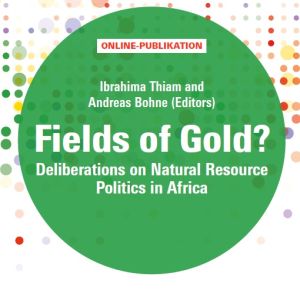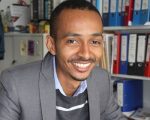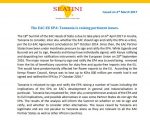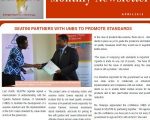Deliberations on Natural Resource Politics in Africa | Edited by RLS (Ibrahima Thiam and Andreas Bohne) | April 2017
African countries are characterised by an abundant supply of resources including (agricultural) land, recently discovered oil and gas reserves or deposits of gold, platinum and others. However, what seems to be a blessing for the some can turn out to be a curse for others. Resource politics in various countries is highly contested and results in power struggles and violence. Key elements of the debate around natural resources are transparency, benefit sharing schemes, evictions, compensations, environmental effects, job creation, growth rates, privatisation, the role of multinational companies and involvement of communities.
This online publication contains presentations which were held at a Stiftung-internal workshop in Dakar. It illustrates some aspects of the discussion on resource politics in Africa. The publication is divided into three sections.
The first section provides background papers on resource politics. Allan Kalangi describes the recent developments regarding oil politics in Uganda and touches on topics like dispossession or low transparency standards. He sees a continuity in political actions from colonial times up to the situation today. Joan Leon shifts the geographical focus to the neighbouring country of Tanzania. While the Tanzanian government make mining resources accessible and extractable for accumulation, a multitude of social and political challenges exist. Andreas Bohne takes a look at EU resource politics and their dominant aim to secure access to raw materials. While several cases studies and reports reveal negative impacts on communities and the environment at local level, European politicians and companies oppose binding legal regulations. The need for binding regulation, the role of solidarity along global supply chains and the entry points for a political foundation is broached by Stefanie Kron.
This chapter provides the link to the second section of the publication with Ibrahima Thiam and Fredson Guilengue who discuss the West African region and the Southern African region respectively. They describe the main challenges of resource use in both regions and sketch out how the Stiftung’s regional programme and its partners are endeavouring to tackle the situation. While the situation in the different countries is diverse, it becomes obvious that civil society actors play an important role within the political arena with regard to mining.
The third and final section covers the main results of the workshop focussing on forthcoming joint activities and topics for strategic development. We look forward to continuing the discussion.
Content
- Introductory remarks | Ibrahima Thiam and Andreas Bohne
- Oil curse looms large in East Africa as leaders continue colonial exploitation of natural resources | Allan Kalangi
- The paradox of natural resources in Tanzania | Joan Leon
- Securing access and externalising adverse effects as two sides of the same coin: The EU resource policy and Africa | Andreas Bohne
- Natural resource politics and solidarity along transnational production chains | Stefanie Kron
- The challenge of natural resources in West Africa (Niger, Mali and Senegal): a short overview of the Rosa-Luxemburg-Stiftung’s West Africa programme |
Ibrahima Thiam - Natural resources, vulnerability and alternatives: a short overview of the Rosa-Luxemburg-Stiftung’s Southern African Programme | Fredson Guilengue
- Internal workshop: summary of results | Andreas Bohne and Ibrahima Thiam





